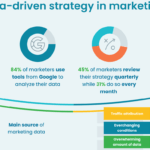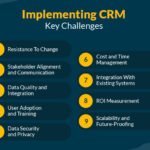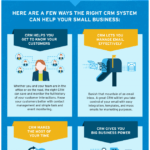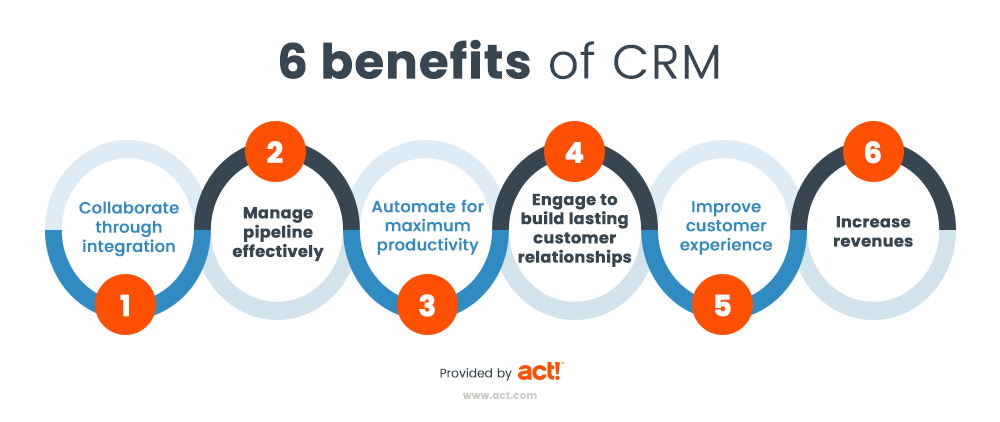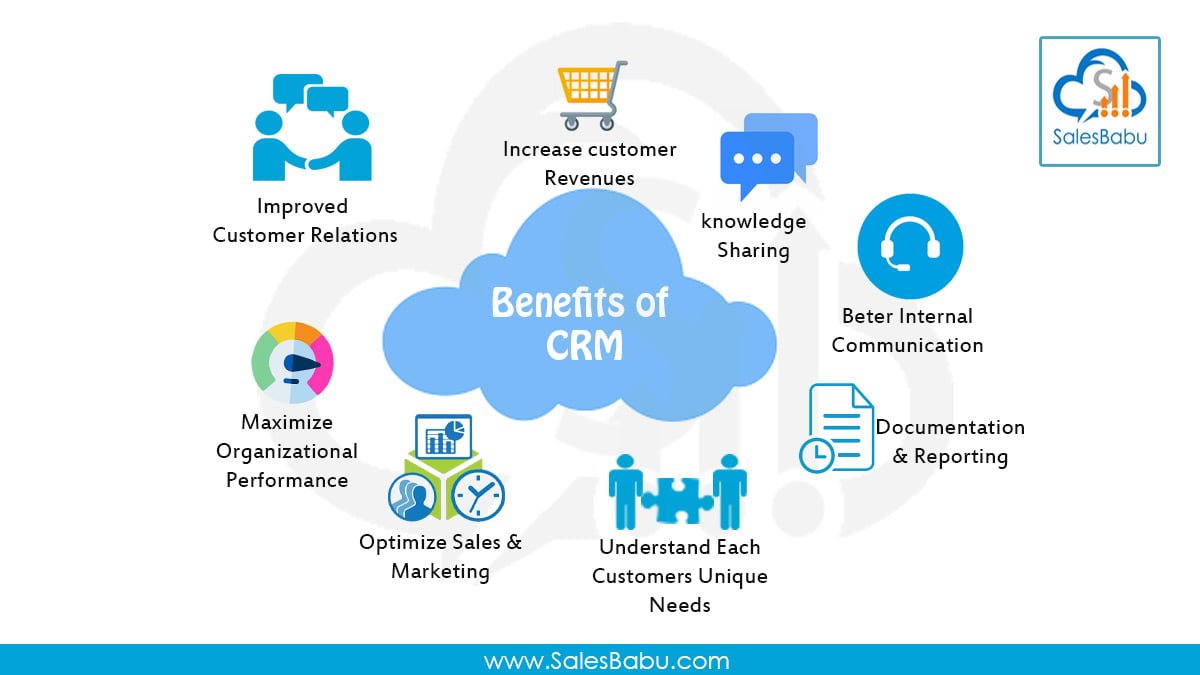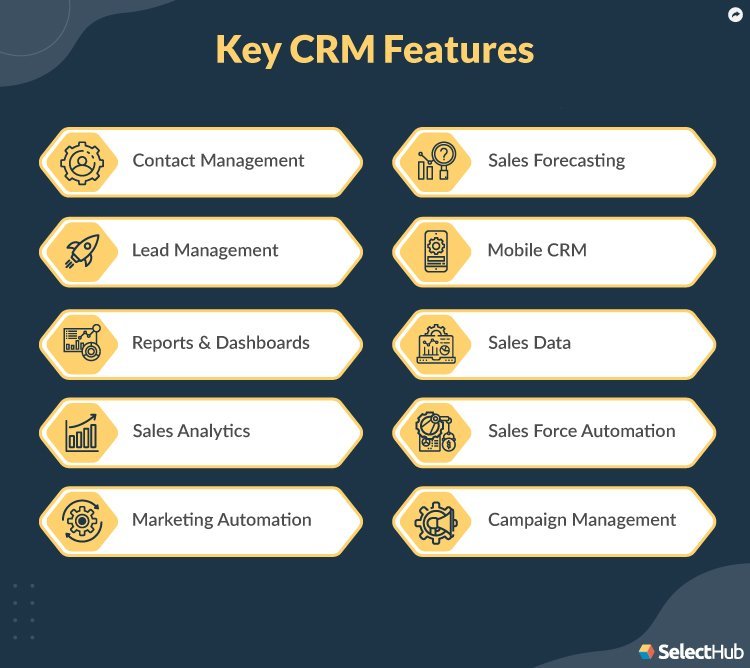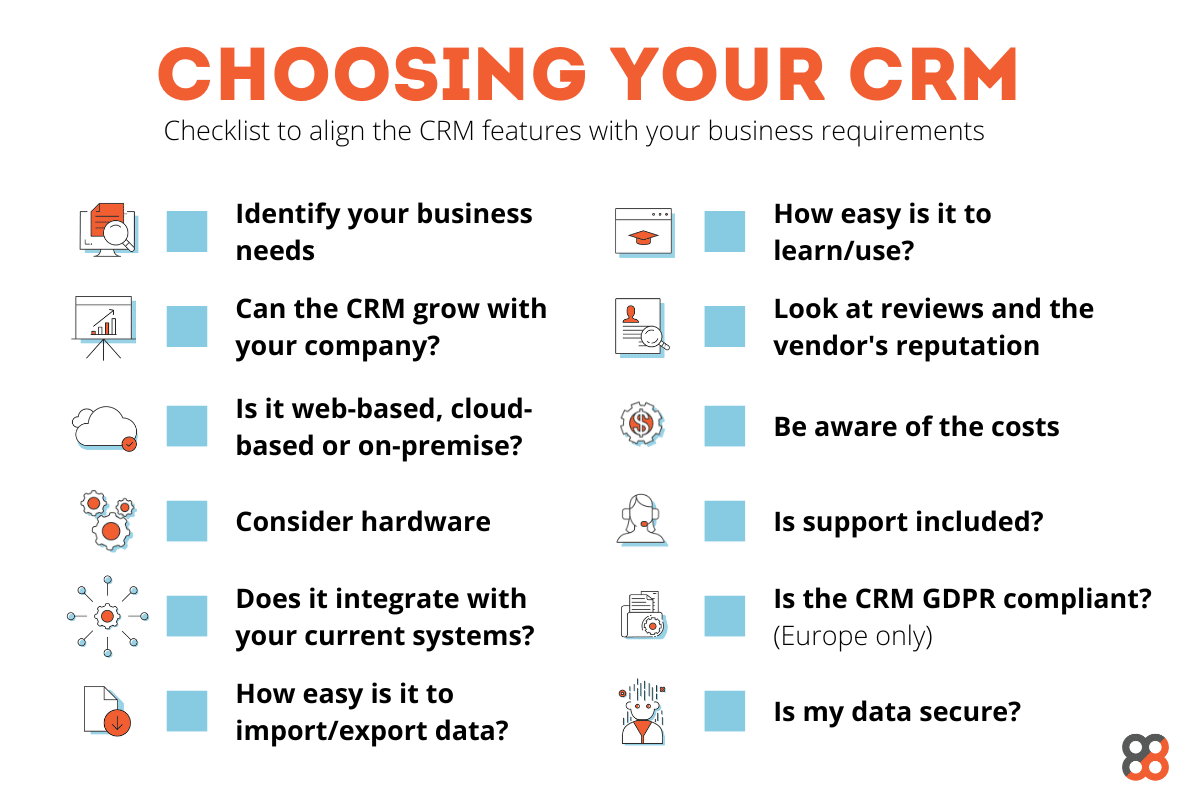In the competitive business landscape, customer relationship management (CRM) has emerged as a cornerstone for organizations looking to enhance their customer interactions, streamline operations, and drive growth. CRM is a comprehensive strategy and a powerful tool that plays a vital role in shaping an organization’s success.
What is CRM and why is it important for businesses?
What is CRM?
CRM stands for Customer Relationship Management. It’s a strategy and technology that helps businesses manage and improve their relationships with current and potential customers. CRM systems are designed to collect and store customer information, track interactions, and automate tasks to create a more personalized and efficient customer experience.
Why is CRM important for businesses?
CRM is essential for businesses because it helps them:
- Improve customer satisfaction: By providing personalized experiences and addressing customer needs more effectively.
- Increase sales and revenue: By identifying and nurturing leads, upselling and cross-selling products or services.
- Boost marketing effectiveness: By targeting the right customers with the right messages.
- Streamline business processes: By automating tasks and improving efficiency.
- Gain valuable insights into customer behavior: To make better business decisions.
Key features of CRM systems:
| Feature | Description |
|---|---|
| Customer data management | Collects and stores information about customers, such as contact details, purchase history, preferences, and interactions. |
| Sales automation | Automates tasks such as lead generation, qualification, and follow-up, freeing up sales representatives to focus on closing deals. |
| Marketing automation | Automates email marketing campaigns, social media interactions, and other marketing activities to reach the right customers with the right messages. |
| Customer service and support | Provides a centralized platform for handling customer inquiries, complaints, and requests, enabling faster resolution times and improved customer satisfaction. |
| Reporting and analytics | Provides insights into customer behavior, sales performance, and marketing effectiveness, helping businesses make data-driven decisions. |
The Power of Customer Relationships: Understanding CRM and Its Business Impact
What is CRM?
CRM, or Customer Relationship Management, is a strategic approach that businesses employ to manage and enhance their interactions with current and potential customers. It encompasses a wide range of processes, technologies, and strategies aimed at optimizing customer engagement, building loyalty, and fostering long-term relationships.
Key Benefits of CRM for Businesses
CRM offers a plethora of benefits that can significantly contribute to a business’s success. These benefits include:
Improved Customer Satisfaction: By centralizing customer data and providing a unified view of customer interactions, CRM empowers businesses to understand their customers’ needs and preferences better. This enables them to provide personalized experiences, resolve issues quickly, and exceed expectations, leading to higher customer satisfaction.
Enhanced Sales Performance: CRM systems provide sales teams with valuable insights into customer behavior, purchase history, and communication preferences. This information empowers them to target the right customers with the right products or services, optimize sales strategies, and close deals more effectively.
Increased Marketing Efficiency: CRM allows businesses to segment their customer base, personalize marketing campaigns, and measure the effectiveness of their marketing efforts. By understanding customer demographics, interests, and preferences, businesses can create targeted campaigns that resonate with their audience, leading to higher conversion rates and improved ROI.
Streamlined Operations: CRM systems automate many manual tasks, such as data entry, follow-up communication, and reporting, streamlining business processes and freeing up valuable time for employees. This efficiency translates into cost savings, improved productivity, and a more agile organization.
Data-Driven Decision Making: CRM collects and analyzes vast amounts of customer data, providing businesses with invaluable insights into customer behavior, market trends, and competitive landscape. This data empowers businesses to make informed decisions, optimize strategies, and stay ahead of the competition.
Common CRM Features and functionalities
CRM systems are packed with features and functionalities designed to address specific business needs. Some of the most common features include:
Contact Management: Storing and managing customer information, including contact details, purchase history, communication preferences, and notes.
Sales Management: Tracking leads, opportunities, sales pipelines, and forecasting sales performance.
Marketing Automation: Creating and managing email campaigns, automating social media interactions, and tracking campaign performance.
Customer Service Management: Handling customer inquiries, resolving issues, and tracking customer support interactions.
Reporting and Analytics: Generating reports and dashboards to analyze customer data, track performance metrics, and identify trends.
Choosing the Right CRM System
Selecting the appropriate CRM system is crucial for maximizing its impact. Businesses should consider the following factors when choosing a CRM:
Business Needs: Identify the specific business challenges and objectives that the CRM system needs to address.
Budget: Determine the budget allocated for CRM implementation, including software costs, training, and ongoing support.
Scalability: Choose a system that can grow with the business, accommodating increasing customer volume and data complexity.
Integrations: Ensure the CRM system integrates with existing business systems, such as accounting software, marketing automation platforms, and email marketing services.
User Friendliness: Opt for a system with a user-friendly interface and intuitive navigation, ensuring smooth adoption by employees.
Implementing and Managing a CRM System
Successfully implementing and managing a CRM system involves a comprehensive approach, including:
Planning and Strategy: Defining clear objectives, identifying key stakeholders, and developing a roadmap for CRM implementation.
Data Migration: Transferring existing customer data from legacy systems into the CRM system, ensuring data accuracy and consistency.
User Training: Providing comprehensive training to employees on the CRM system’s functionalities, features, and best practices.
Ongoing Support: Establishing ongoing support channels, including technical support, user assistance, and system updates.
Continuous Improvement: Regularly evaluating CRM performance, identifying areas for improvement, and making adjustments to optimize system utilization and ROI.
Frequent questions
What is CRM?
CRM stands for Customer Relationship Management. It is a strategy and a set of technologies that businesses use to manage their interactions with current and potential customers. Essentially, it’s about building strong and lasting relationships with your customers, by understanding their needs and wants, and providing them with a personalized and positive experience. A CRM system helps you track customer interactions, gather data about their preferences and behaviors, and use that information to make better business decisions.
Why is CRM important for businesses?
CRM is crucial for businesses because it helps them improve customer satisfaction, increase revenue, and build brand loyalty. By understanding your customers better, you can tailor your marketing campaigns, improve your sales processes, and provide more personalized customer service. Ultimately, CRM helps you create a more customer-centric approach to your business, which leads to better results.
How does CRM work?
CRM systems work by collecting and storing data about your customers, such as their contact information, purchase history, preferences, and interactions with your brand. This data is then analyzed to identify patterns and insights that can be used to improve your business operations. For example, you might use CRM data to identify which marketing campaigns are most effective, which customers are most likely to make a purchase, or which products are most popular.
What are the benefits of using CRM?
There are many benefits to using CRM, including:
- Improved customer satisfaction: CRM helps you understand your customers better and provide them with a more personalized experience, which leads to greater satisfaction.
- Increased revenue: By improving customer relationships and understanding their needs, you can increase sales and generate more revenue.
- Enhanced efficiency: CRM systems can automate many tasks, such as email marketing, lead generation, and customer service, freeing up your time to focus on other priorities.
- Better decision-making: CRM data provides valuable insights that can help you make better business decisions.
- Stronger brand loyalty: By providing exceptional customer service, you can build stronger relationships with your customers and foster brand loyalty.



